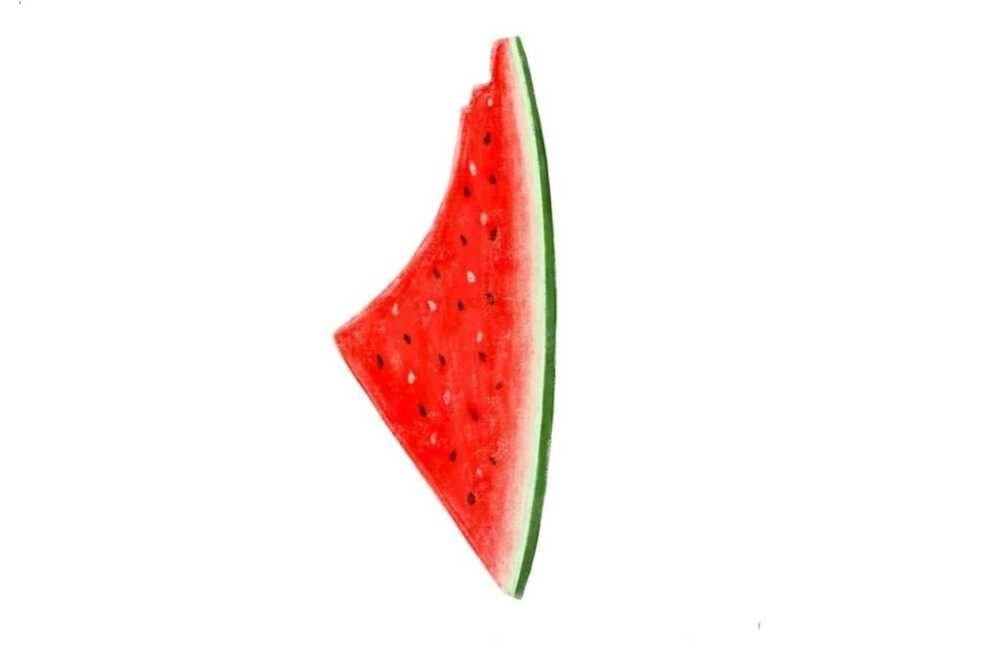Why do watermelons symbolise support for Palestine?
SYDI ALIF
SHAH ALAM - To the world, the watermelon may just be another sweet, watery, thirst-quenching fruit to indulge in, especially on a hot, sunny day, but in the eyes of every Palestinian, it carries a far deeper and stronger sense of pleasure, passion, and purpose.
For an average person who has social accounts, whether it's Instagram, Facebook, or Twitter, chances are they may have at least once within the last couple of years come across posts or stories stamped with this colourful fruit emoji.
Upon the integration of the watermelon emoji into keyboards in 2015, it quickly became a symbol widely used in social media posts addressing the longstanding Palestinian struggle against the actions of the Israeli state, persisting to this day.
Substituting the food symbol for the Palestinian flag has a powerful effect on social platforms, as it can help bypass algorithmic censorship or shadowbans, such as those on TikTok and Instagram.
So why is watermelon associated with Palestine? While watermelon holds special significance, it's important to note that it's not the only symbolic representation of the region.
The connection between watermelon and Palestine is rooted in cultural history, but there are also other fruits, foods, and symbols that hold meaning for Palestinians.
Olives, oranges, and eggplants are some other notable nature's gifts that share the same rich history and heritage as the Palestinian people.
However, the vibrant red, green, white, and black hues of this fruit beautifully echo the iconic colours of the Palestinian flag.
In 1967, when a six-day war was taking place between Israel and neighbouring countries including Egypt, Syria, and Jordan, the Zionist government banned the Palestinian flag from being displayed within its occupied territory in order to put a stop to the rising flame of Palestinian as well as Arab nationalism.
The colonising power managed to retain the restriction extensively for almost 30 years until 1993, when the Oslo Accords loosened restrictions on Palestinians in Israel.
Over the course of nearly three decades, the vibrantly colourful fruit grown across Palestine, from Jenin to Gaza, has been harvested to symbolise the Palestinian protest.
The bright red fruit, covered with green and white rind and filled with specklings of black seeds, was readily available for use in demonstrations against the Israeli occupation of the West Bank and Gaza. Protesters would bring loads of watermelon in place of their national flag.
While Israel no longer prohibits the Palestinian flag by law in this day and age, some of its prominent leaders have yet to express their opposition to the flag being carried and waved in protests.
The infamous Prime Minister Benjamin Netanyahu perceived and explicitly referred to the sight of the Palestinian flag in such settings as an 'incitement.
Earlier this year, Israeli National Security Minister Itamar Ben-Gvir deployed the police and the Israel Defence Force in a controversial move to seize Palestinian flags from public areas.
The minister even suggested that displaying the flag of the occupied state indicates support for terrorism.
As a result, even in places where the flag is legally allowed, those discussing Palestine often resort to euphemisms and symbolism to avoid potential censorship or being wrongly labelled as terrorists, similar to some Meta users' experiences on Instagram.
Moreover, the watermelon has emerged as a powerful symbol of resistance, perpetuating its message through beautifully crafted art, shirts, graffiti, posters, and, of course, across various social media platforms.
Download Sinar Daily application.Click Here!














